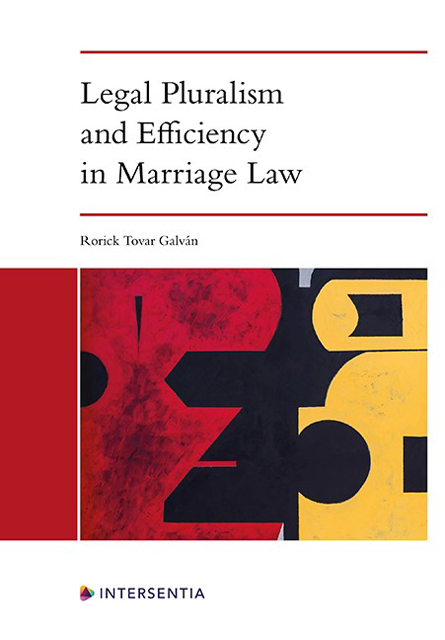Book contents
- Frontmatter
- Dedication
- Miscellaneous Frontmatter
- Foreword
- Preface
- Acknowledgments
- Contents
- List of Cases
- Introduction: Uncertainty and Inconsistency Surrounding the Determination of the Applicable Law in the EU Instruments on Matrimonial Issues
- Part I Economics As A Point Of Departure To Explain The Substantive Rules On Matrimonial Issues
- PART II Economics as a Point of Departure to Build a System of Conflict of Laws For Matrimonial Issues
- Conclusion: Certainty, Precision, Coherence, and Simplicity in the Determination of the Applicable Law
- Bibliography
- Index
- About the Author
Chapter 6 - Regulatory Competition and the Law Market for Matrimonial Issues
Published online by Cambridge University Press: 17 December 2022
- Frontmatter
- Dedication
- Miscellaneous Frontmatter
- Foreword
- Preface
- Acknowledgments
- Contents
- List of Cases
- Introduction: Uncertainty and Inconsistency Surrounding the Determination of the Applicable Law in the EU Instruments on Matrimonial Issues
- Part I Economics As A Point Of Departure To Explain The Substantive Rules On Matrimonial Issues
- PART II Economics as a Point of Departure to Build a System of Conflict of Laws For Matrimonial Issues
- Conclusion: Certainty, Precision, Coherence, and Simplicity in the Determination of the Applicable Law
- Bibliography
- Index
- About the Author
Summary
One of the most notable novelties introduced by international instruments and national conflict of laws systems drawn up in recent years is the possibility to determine the law governing a relationship via a choice of law agreement. Since the late twentieth century, there has been a clear trend towards allowing individuals to select their specific set of legal rules themselves, not only in contractual disputes, but also in those involving family matters. There are, however, significant differences in the limits imposed on party autonomy in contract and marriage law. Whereas in regular contracts people have a wide menu to choose from – albeit limited in cases involving a weaker party – the freedom of choice granted to spouses is much more restricted. Contractual parties are permitted to choose the legal system they regard as the most appropriate according to their own interests. In contrast, spouses are only allowed to designate a law which the law-maker considers closely connected to their relationship. They can choose between the law of their country of residence, the law of their nationality and – under certain conditions – the law of the forum.
The introduction of party autonomy into international marriage law is a step forward in terms of efficiency. Not only does it reinforce the predictability of the outcomes of legal proceedings, but it also clarifies the exact rights and obligations arising from a marriage. Furthermore, the freedom of choice allows the designation of a single governing law to the most important aspects of a relationship that – given the options put at their disposal by the law – best responds to the preferences of these spouses. If the objective of private international law is the elimination of barriers hindering the emergence of cooperative dynamics, there is little doubt about the benefits of freedom of choice for achieving this purpose. Since the possibility to conclude choice of law agreements seems so advantageous from an economic point of view, it is worth asking why not further extend the number of the spouses’ options?
- Type
- Chapter
- Information
- Legal Pluralism and Efficiency in Marriage Law , pp. 145 - 178Publisher: IntersentiaPrint publication year: 2022

